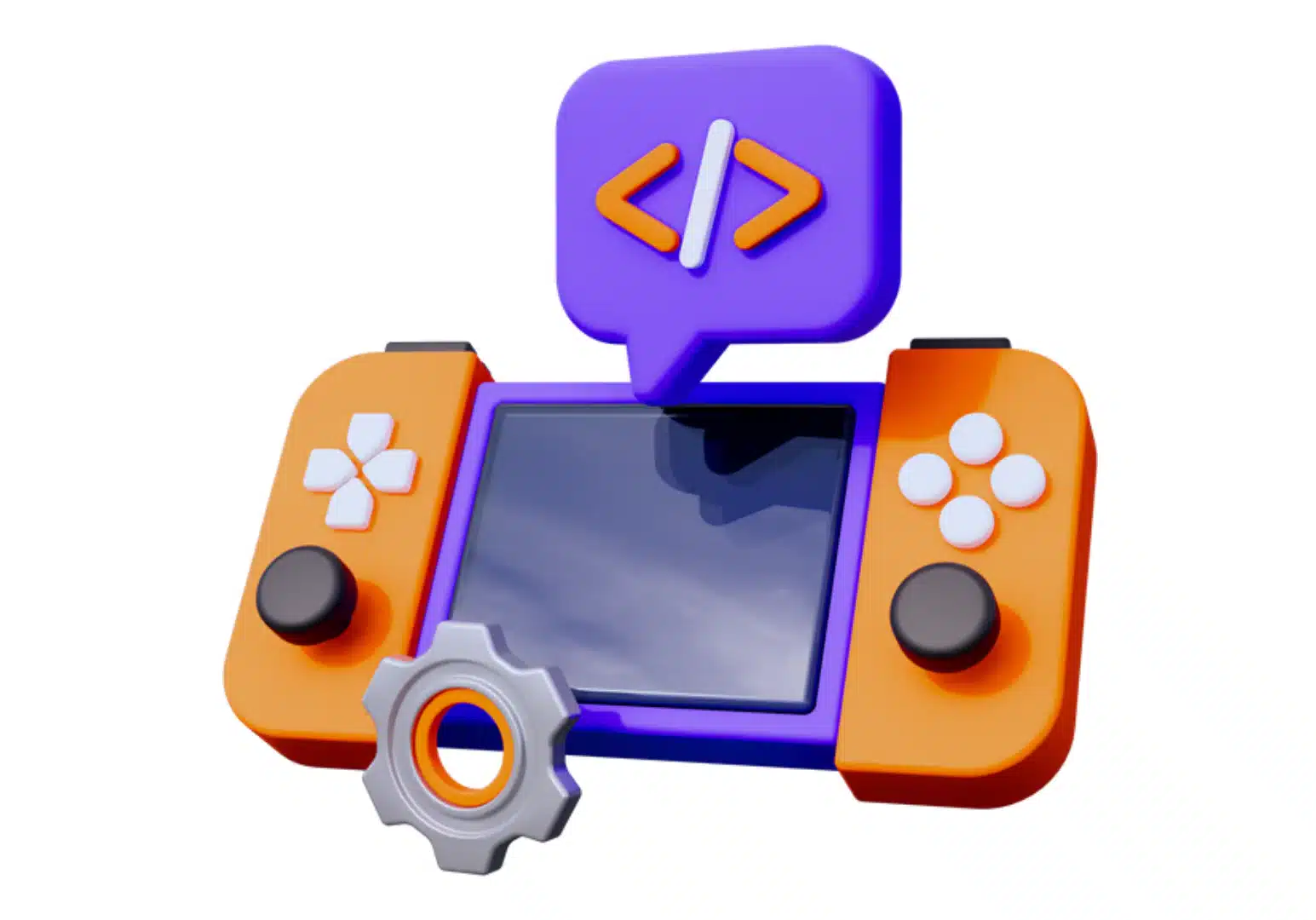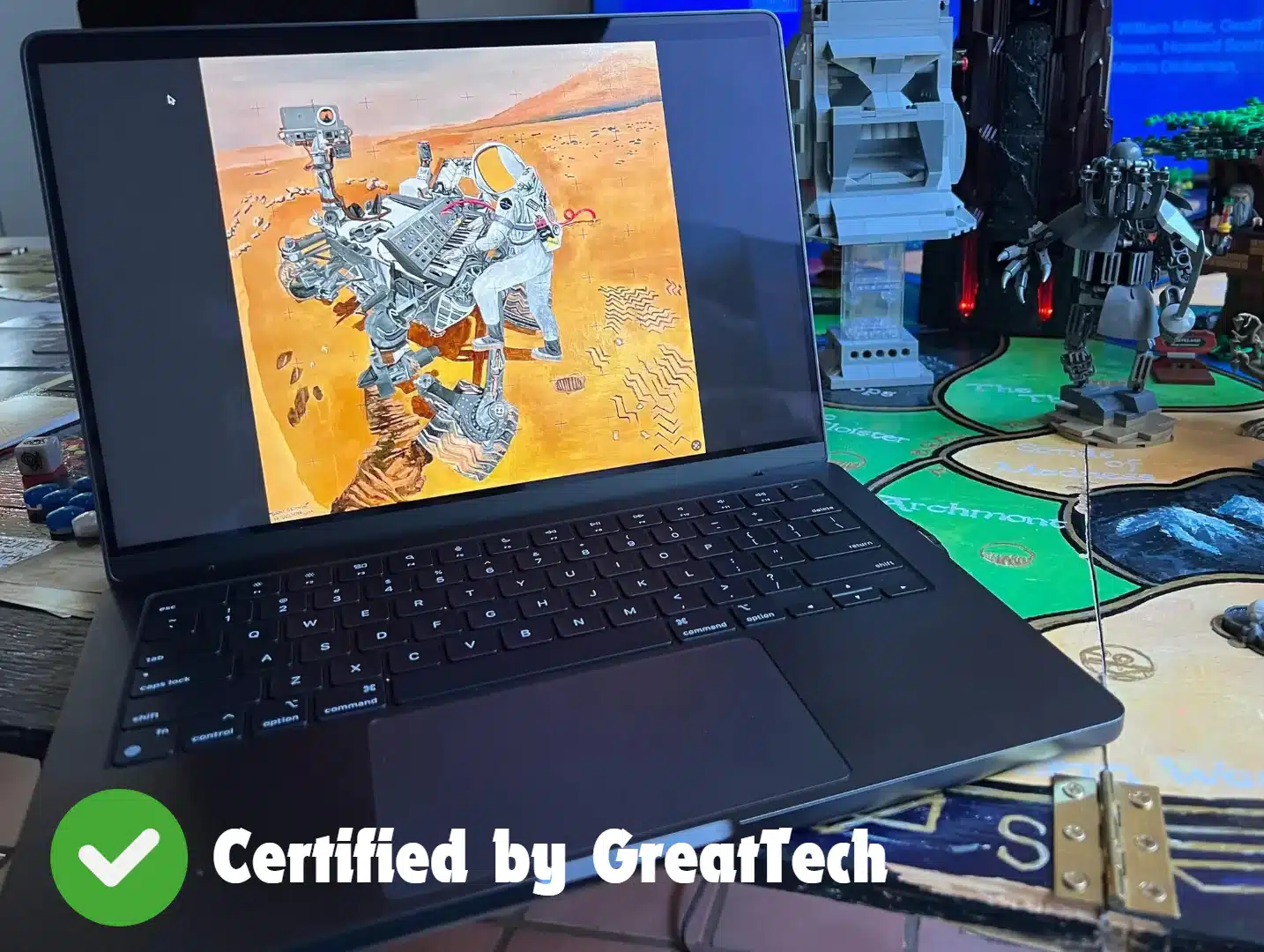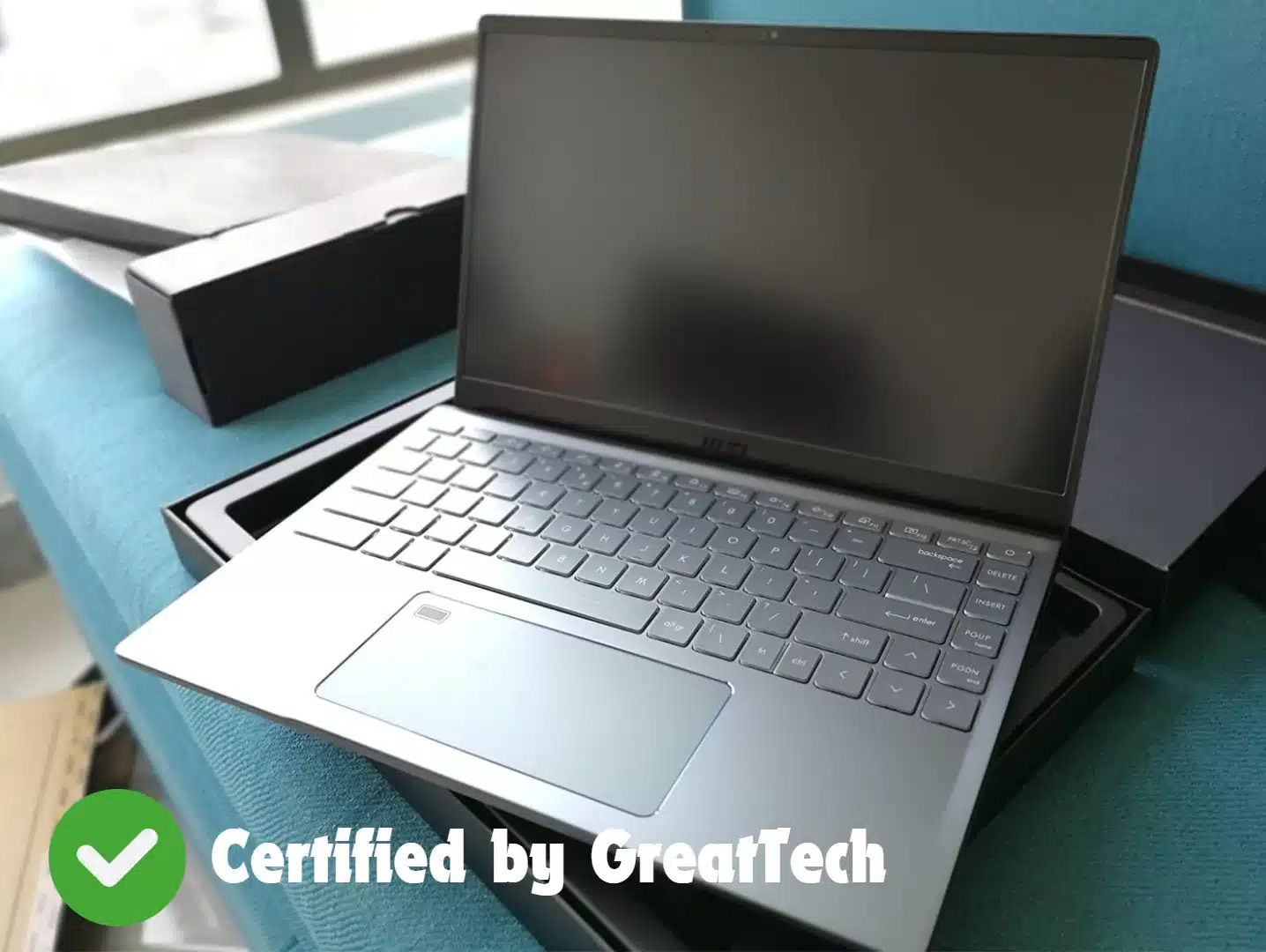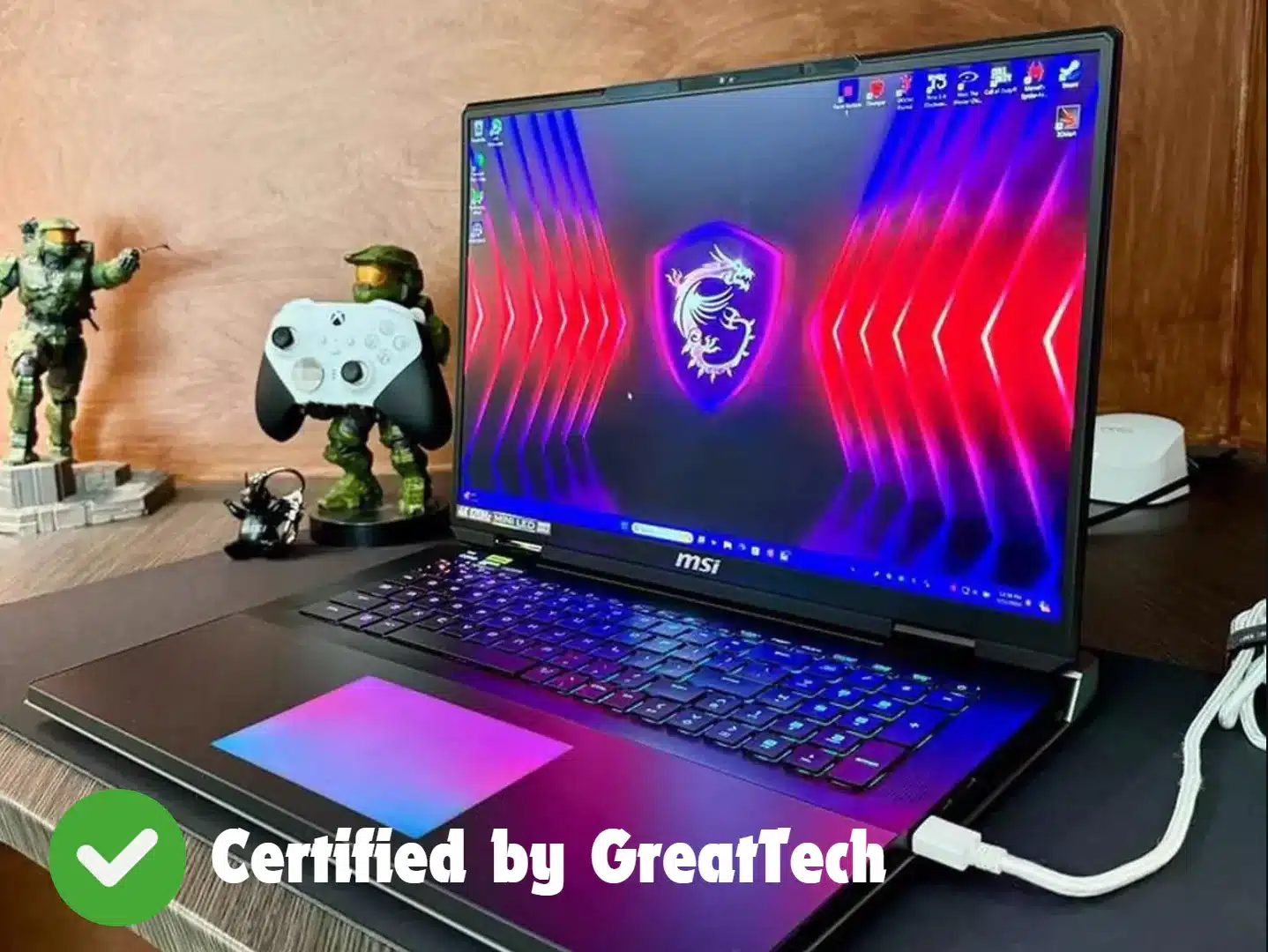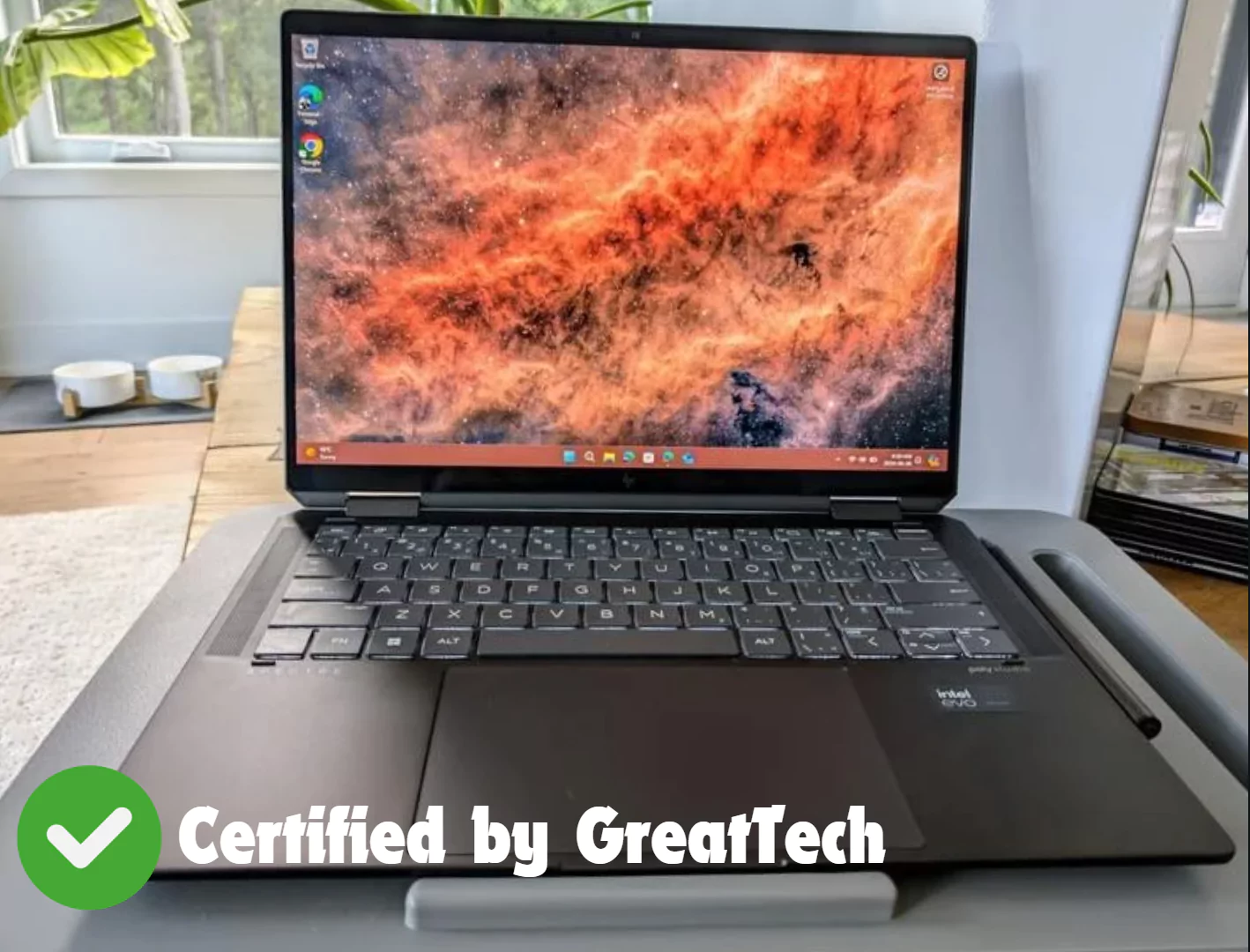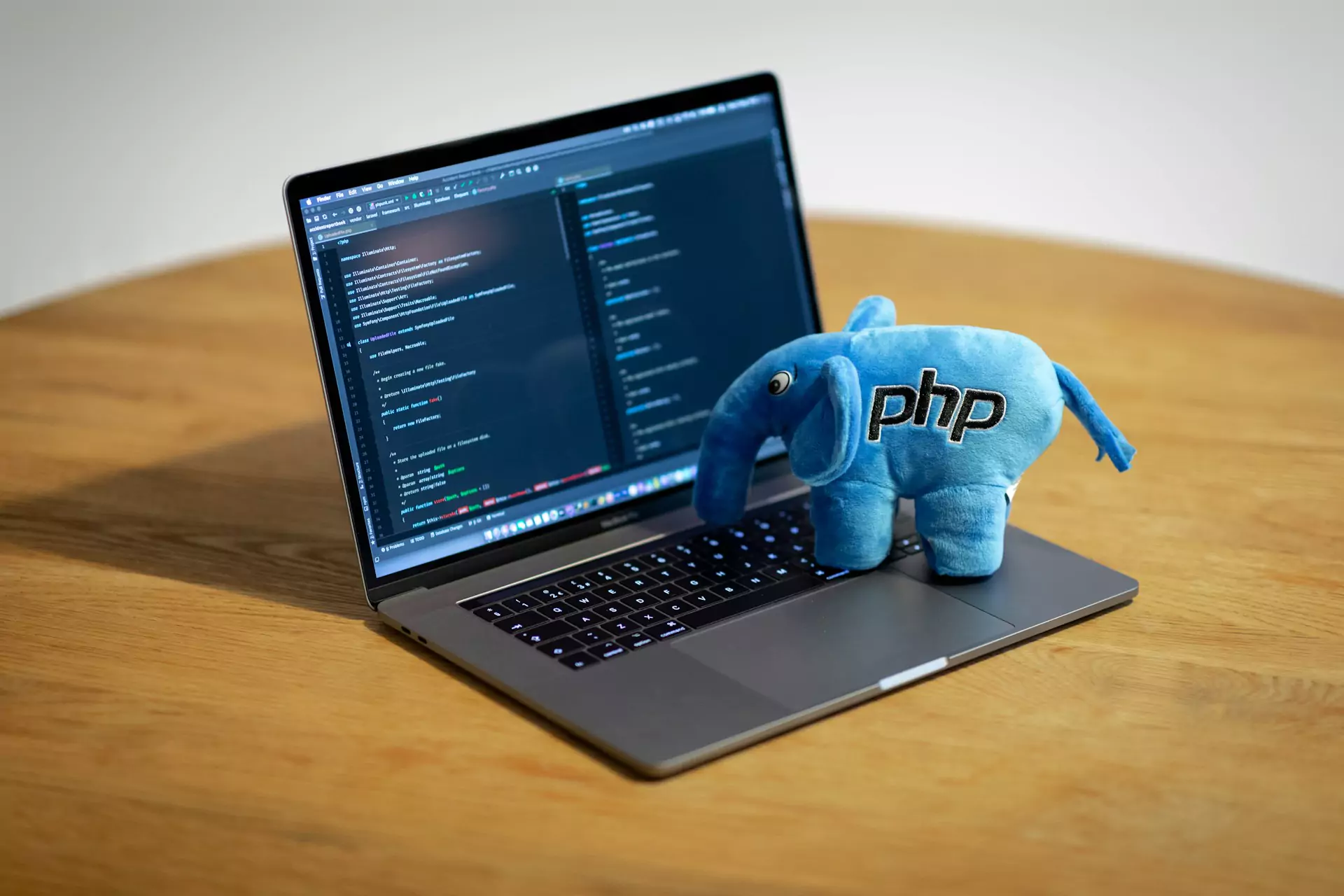
Attention coders and developers! Whether you’re writing your first lines of code or pushing the limits with complex algorithms, having the right laptop is crucial to streamline your workflow. A great programming laptop needs to handle heavy compiling, support multiple open IDEs, and offer smooth multitasking, all while being portable enough to move from your home office to a co-working space. Plus, if you’re diving into fields like web development or app building, a sharp display and comfortable keyboard are must-haves for those long coding sessions.
That’s why our expert team has curated this guide on the best laptops for programming. We’ve rigorously tested and reviewed a wide range of models, from budget-friendly options to premium high-performance machines that can handle anything you throw at them. Whether you prefer macOS, Windows, or even Linux, we’ve got the right pick for every developer’s needs.
We’ve tested over 100 laptops based on key factors like performance, battery life, portability, and comfort, ensuring you find the perfect coding companion, whether you’re at home, in the office, or on the go.
Best Laptops For Programming in 2024: Tested & Certified:
✅ We have tested over 1100 laptops since 2013.
✅ Our 3 hardware experts have more than 11 years of experience in hardware.
✅ We have spent over 21,315 hours testing laptops.
Our team of experts uses each laptop as an end consumer would, simulating real-world scenarios to give you an authentic, comprehensive review. We focus on rigorous, hands-on testing to ensure our recommendations are both reliable and trustworthy, Read More.
Apple MacBook Pro 14-inch (M3, 2023)
Specifications:
| SPEC | |
|---|---|
| CPU | Apple M3 Chip |
| Graphics | Integrated 10-core GPU |
| RAM | 8GB Unified Memory |
| Storage | 512GB SSD |
| Display | 14.2-inch (3024×1964) Liquid Retina XDR display |
| Tested Battery Life | 22 hours of battery life |
| Ports | 1x MagSafe (charging port), 3x Thunderbolt 4, 1x SDXC card slot, 1x HDMI, and a 3.5mm headphone jack |
| Weight | 3.4 Pounds (1.55 kg) |
The Apple Macbook Pro 14-inch is today’s star of the show it comes packed with great features packed inside. It’s our top recommendation for programmers, coders, and developers who want a well-rounded package for programming.
It comes with the Apple M3 Chip which provides stellar performance for programming though it’s not only enough but overkill for most programming needs. The graphical performance is solid for programming tasks but not so well-suited for a more graphical-intensive workload. The display is just gorgeous and gives vivid colors, which helps programmers by offering sharp, clear text and visuals, reducing eye strain during long coding sessions, and making multitasking easier with its high resolution.
And most impressive thing is the battery life it gives us more than 22 hours of battery backup the keyboard is stable responsive, and easy to get used to and even has a backlit, but the short travel may cause fatigue during long typing sessions but the typing experience is good overall. The port selection is also great the laptop comes with all necessary ports including USB Thunderbolt 4, HDMI, SD card slot, and a 3.55mm headphone jack to connect all kinds of peripherals and accessories.
The thermals were nice and kept the laptop cool and the fans ran quietly, even at full load, making them barely noticeable. It comes in a premium price tag of $1299 but it justifies its value with the great features it packs inside.
MSI Prestige 16-inch AI EVO
Specifications:
| SPEC | |
|---|---|
| CPU | Intel Ultra 7-155H |
| Graphics | Intel Arc Graphics |
| RAM | 32GB DDR5 RAM |
| Storage | 1TB SSD |
| Display | 16-inch QHD+ (2560×1600) 60Hz IPS Display |
| Tested Battery Life | 18 hours of battery life |
| Ports | 2x Thunderbolt 4, 1x USB 3.2 Gen 2 Type-A, 1x HDMI 2.1, 1x RJ-45 (Ethernet), 1x (DP) Display Port 1.4, 1x SD card slot, 1x 3.5mm headphone jack |
| Weight | 3.43 Pounds (1.55 kg) |
The MSI Prestige 16-inch AI EVO has just impressed us with its strong set of features packed inside. It’s our top recommendation for coders who want a Windows laptop for their programming needs.
Powered by an Intel Core Ultra 7-155H processor, this laptop delivers great performance. From basic coding tasks to more advanced programming projects, it handles them all effortlessly. The Intel Arc Graphics performs well for general programming work but might fall short for more graphically demanding tasks, such as 3D rendering or intensive game development.
The 16-inch 2.5K IPS display provides sharp visuals and excellent clarity, which is perfect for programmers who need to work with multiple lines of code on-screen. The high resolution reduces eye strain during long coding sessions, making multitasking easier and smoother.
When it comes to build quality, the MSI Prestige feels solid and well-built, with minimal flex in the chassis, making it sturdy to hold. While it’s not quite at the premium level of a MacBook Pro, it’s certainly robust enough for daily use. The port selection is a standout feature, offering Thunderbolt 4, USB Type-A, HDMI 2.1, DisplayPort 1.4, and a headphone jack—making it easy to connect to any peripherals or accessories you need.
Battery life is another highlight, offering an impressive 18 hours of backup in our testing, which means you won’t be scrambling for a charger during a full day of work. On the downside, the typing experience is mediocre, with shallow key travel not so suitable for programmers. And the laptop does get warm under heavy load, during long programming sessions.
At a price point of $1,449, the MSI Prestige 16 offers excellent value, especially when compared to other high-end laptops like the Gigabyte Aero 16 or Dell XPS 15, which sit at a much higher price range. While it’s not meant for gaming or high-end content creation, this laptop excels in productivity and programming tasks, making it a solid investment for developers looking for a capable and well-rounded machine.
MSI Titan 18 HX
Specifications:
| SPEC | |
|---|---|
| CPU | Intel Core i9-14900HX |
| Graphics | NVIDIA Geforce RTX 4090 |
| RAM | 128GB DDR5 |
| Storage | 4TB NVMe SSD |
| Display | 18-inch (3840×2400) 120Hz Mini LED Display |
| Tested Battery Life | 4 hours of battery life |
| Ports | 3x USB 3.2 Gen 2 Type-A, 2x USB Thunderbolt 4, 1x HDMI 2.1, 1x SD Card Reader, , 1x (2.5 Gbps) RJ-45 (Ethernet), 1x 3.5mm Headset Jack |
| Weight | 8.01 pounds (3.63 kg) |
The MSI Titan 18 HX has proven to be a top-tier choice for game developers, offering powerhouse specifications right out of the box. It’s our top recommendation for developers who need a desktop replacement laptop with serious performance.
Equipped with the latest Intel Core i9-14900HX and the ultra-high-end RTX 4090, this laptop delivers exceptional performance, making it ideal for game development. Whether you’re running complex simulations, working with Unreal Engine, or handling large assets, this machine handles everything smoothly. The RTX 4090 provides stellar performance for 3D rendering and intensive game development tasks, although it may be overkill for less graphically demanding workflows.
The 18-inch 4K 120Hz Mini LED display is perfect for both game development and gameplay testing, offering vivid colors, sharpness, and excellent clarity that make coding and testing more immersive. It minimizes eye strain during long work sessions, with benefits for multitasking and precision in design.
The Cherry MX mechanical keyboard is incredibly satisfying for typing, featuring clicky keys that feel responsive, though the deep key travel might not suit everyone’s preferences for extended typing. The thermals are well-managed, keeping the palm rests and keys cool even under heavy workloads, despite the laptop getting warm in some areas. The extensive port selection includes USB Type-A, Thunderbolt 4, HDMI 2.1, and a 3.5mm headphone jack, ensuring easy connection to any peripherals or accessories you need for development.
On the downside, the 4-hour battery life is relatively short due to the power-hungry CPU and GPU, making it less practical for working away from a power source. Additionally, the laptop is quite bulky and heavy, weighing over 8 pounds, which limits portability.
For game developers who prioritize performance over portability and need a machine that can handle the heaviest workloads, the MSI Titan 18 HX justifies its $4,799 price tag, offering exceptional value in its class. Alternatively, if you want a more lightweight option with a better battery life then ASUS ROG Zephyrus G14 could be a better choice.
HP Spectre x360 2-in-1
Specifications:
| SPEC | |
|---|---|
| CPU | Intel Core Ultra 7-155H |
| Graphics | NVIDIA GeForce RTX 4050 |
| RAM | 32GB LPDDR5X RAM (Onboard) |
| Storage | 1TB PCIe SSD |
| Display | 16-inch (2880×1800), 120Hz OLED Dipslay |
| Tested Battery Life | 11 hours of battery life |
| Ports | 2x Thunderbolt 4, 1x USB 3.2 Type-A, 1 x HDMI 2.1, 1x headphone/microphone combo |
| Weight | 4.42 Pounds (2 kg) |
The HP Spectre x360 16 stands out as one of the best 2-in-1 for programming, offering impressive specs in a sleek and portable design. If you’re a programmer looking for a flexible, high-performance machine that can double as a tablet, this is our top recommendation.
Equipped with the Intel Core Ultra 7-155H, the Spectre x360 delivers solid performance for any level of coding. The RTX 4050 GPU adds some extra power for tasks like 3D rendering or simulations, though its low wattage limits the performance.
The 16-inch OLED display with its 120Hz refresh rate is a real treat for programmers. The vibrant colors and sharp clarity make reading lines of code and working on multiple windows easy on the eyes, especially during long sessions. Plus, the screen size gives you ample workspace for multitasking.
Battery life is a strong suit, with up to 11 hours, which means you can comfortably work on the go without constantly searching for a power outlet. At 4.42 pounds, the Spectre x360 is light enough to carry around with ease. The port selection, which includes two Thunderbolt 4 ports, USB 3.2 Type-A, and HDMI 2.1, offers plenty of connectivity options without needing a dongle.
That said, there are some trade-offs. The thermals could be better, as the laptop tends to get warm under heavy workloads. Additionally, while the keyboard is comfortable, it may not be the best fit for everyone, especially those who prefer deeper key travel for long typing sessions. At a price point of $2,279.99, it offers good value for its feature set, though if you want a powerful, portable 2-in-1 laptop that can handle demanding tasks with ease, the HP Spectre x360 16 should be your top priority.
FAQ’s (Frequently Asked Questions):
What are the key features to look for in a laptop for programming?
When choosing a laptop for programming, prioritize a fast processor (preferably Intel i7 or Ryzen 7 and above), at least 16GB of RAM, SSD storage for speed, and a comfortable keyboard because that is what you would mostly do as a developer.
How much RAM do I need in a programming laptop?
For most programming tasks, 16GB of RAM is sufficient, but if you’re working with large datasets, running virtual machines, or doing heavy development work 32GB or more RAM is our recommendation.
Is a dedicated GPU necessary for programming?
A dedicated GPU is not essential for general coding but is recommended if you work with game development, 3D rendering, or AI and machine learning tasks that require parallel processing power.
Does screen resolution matter for a programming laptop?
Yes, a higher resolution (1080p or above) provides more screen real estate, which is beneficial for multitasking, viewing multiple windows, or working with long lines of code.
Is battery life important for a programming laptop?
Yes, long battery life is crucial, especially if you often work away from a desk or power outlet. Ideally, a laptop with at least 8-10 hours of battery life ensures you can code through long sessions without being tethered to a charger.
Buying Guide For Best Laptops For Programming:
Looking for the perfect laptop to kickstart your programming journey? Don’t worry—we’ve got you covered! Whether you’re a beginner or a seasoned coder, finding the right machine can make all the difference in your workflow.
First things first, let’s talk about RAM. A good rule of thumb is to aim for 16GB or more. This ensures your laptop can handle multitasking, running multiple IDEs, and compiling code quickly without breaking a sweat. Trust us—more RAM means less frustration.
Next up, is the CPU. You’ll want a processor that’s fast and reliable. Intel Core i7 or Ryzen 7 are great options for compiling code and running simulations without lag. These CPUs will keep things running smoothly, especially when handling complex programs.
And let’s not forget the screen. A spacious display with high resolution (1080p or higher) helps you keep track of multiple lines of code, making your workflow more efficient. It’s all about comfort, so choose a screen size that won’t strain your eyes during long sessions.
A good keyboard is a coder’s best friend! Look for one that’s comfortable, responsive, and durable—after all, you’ll be typing a lot. A well-spaced layout and backlighting are big pluses, especially if you work late into the night.
Lastly, portability and battery life are key. Whether you like to code in coffee shops or travel often, a lightweight laptop with solid battery life (at least 8-10 hours) is essential. Don’t overlook port selection either—you’ll need those USB and HDMI ports for external displays and peripherals.
How We Test The Best Laptops For Programming:
At GreatTech, our approach to selecting today’s top programming laptops is rooted in real-world testing. We go beyond benchmarks, using each laptop for tasks like coding, compiling, multitasking, and running heavy applications to experience it exactly how a programmer would. This hands-on method gives us a clear picture of how the laptop performs under real-world conditions.
Why trust GreatTech? We’ve been reviewing laptops since 2013, testing over 1,100 models and logging over 21,315 hours. Our team of three hardware experts, with 11+ years of experience, ensures that we recommend only the best.
We evaluate performance through a combination of trusted benchmarks and real-world use, focusing on CPU and GPU efficiency for demanding programming tasks. Display quality is another key factor, where we test for sharpness, brightness, and color accuracy to ensure a comfortable coding experience. Battery life is crucial for portable work, so we simulate various use cases to measure real-world longevity.
Beyond performance, we assess build quality, portability, thermal management, and connectivity. We ensure that each laptop is not only powerful but also durable and practical for everyday use. By covering all these aspects, we guarantee you’re getting the best programming laptop for your needs. Read More
Conclusion:
- Stellar performance
- Gorgeous display with vivid colors
- Amazing Battery Life
- Good thermals and Quiet fans
- Excellent speakers
- Good ports selection
- Soldered RAM and Storage
- Short key travel can cause fatigue




